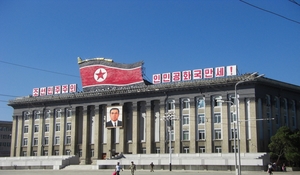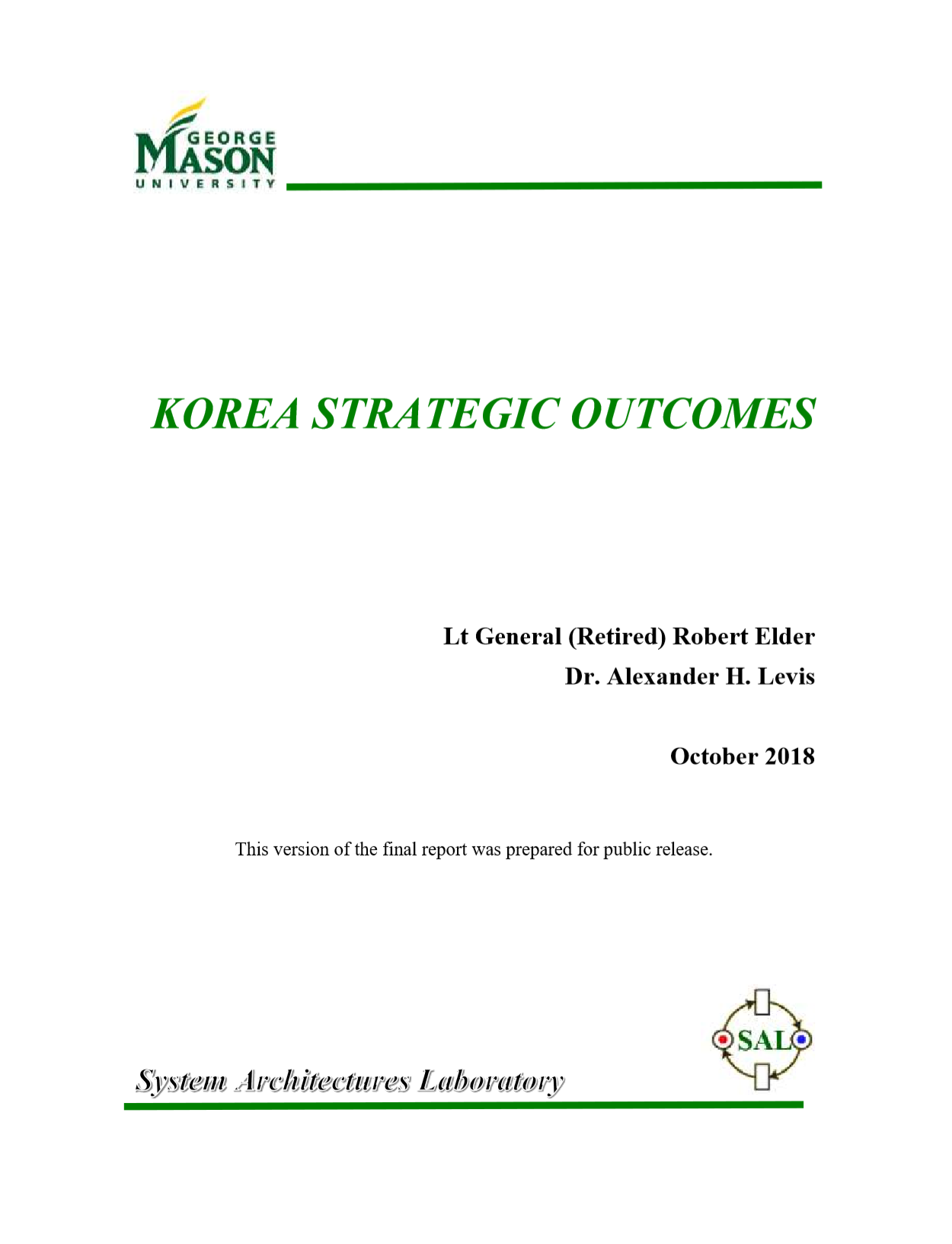Korea Strategic Outcomes

Korea Strategic Outcomes
Authors | Editors: Elder, R. (George Mason University); Levis, A. (George Mason University)
Abstract
The GMU Korean Peninsula strategic outcomes project sought viable political-military options to achieve U.S. strategic objectives with respect to the Korean Peninsula, and examined whether executing these options will introduce risk to other regional U.S. objectives. Timed Influence Net (TIN) models were used to identify potential sources of strategic risk for the United States, and to develop a framework for use by operational planning teams. The TIN model started with possible end-states and examined influence factors that could contribute or undermine attainment of the end-state of interest—in this case Final, Fully Verified Denuclearization (FFVD). The model explored possible intermediate states that would be likely to occur on a path towards FFVD denuclearization and also considered potential US and partner influence factors that could contribute to the intermediate and end-states. Experiments suggest that denuclearization, if achieved, will require many years to implement and the achievement of political, economic, and military accommodations that seem improbable today.

Comments